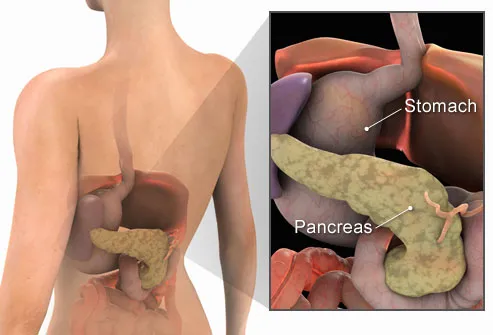
Diagnosed with Cancer? Your two greatest challenges are understanding cancer and understanding possible side effects from chemo and radiation. Knowledge is Power!
Learn about conventional, complementary, and integrative therapies.
Dealing with treatment side effects? Learn about evidence-based therapies to alleviate your symptoms.
Click the orange button to the right to learn more.
- You are here:
- Home »
- Blog »
- Pancreatic Cancer »
- Post Pancreatic Cancer Surgery- What adjuvant chemotherapy is best?
Post Pancreatic Cancer Surgery- What adjuvant chemotherapy is best?

Dear Cancer Coach-my dad was diagnosed with pancreatic cancer and finished his surgery two months ago
 My dad’s doctor suggested he get adjuvant chemotherapy for his pancreatic cancer by taking gemcitabine. My question is if this method is the best option to us, or, if I should my dad get better treatment? If so, what kind of medicine? My dad is 66 years old now, and he kept exercising everyday that makes him pretty healthy before the diagnose two months ago.
My dad’s doctor suggested he get adjuvant chemotherapy for his pancreatic cancer by taking gemcitabine. My question is if this method is the best option to us, or, if I should my dad get better treatment? If so, what kind of medicine? My dad is 66 years old now, and he kept exercising everyday that makes him pretty healthy before the diagnose two months ago.
Also, is it possible to get any suggestions from you about the non-toxic approach for treatment? My dad is eating well and feeling good after the surgery and we don’t want to interrupt this simply by the toxic chemicals.
Finally, what do you think about the newer method by sequencing and then treat each patient individually based on gene sequencing result? Sounds like powerful, specific, and also expensive, but what is the real result?
Thank you again for your time and help! Best regards, Norman
- Cancer Survivor
- Cancer Coach
- Director PeopleBeatingCancer
Recommend Reading:
- Low-Dose Naltrexone (LDN) as Pancreatic Cancer Therapy
- Pancreatic Cancer-Pharmacologic Ascorbic Acid, Curcumin, Bitter Melon?
- Pancreatic Cancer, Feverfew and Arsenic Trioxide
Nab-paclitaxel plus gemcitabine in patients with locally advanced pancreatic cancer (LAPACT): a multicentre, open-label phase 2 study
“Treatment options for patients with unresectable locally advanced pancreatic cancer are scarce. Results from a subanalysis of the phase 3 MPACT trial in metastatic pancreatic cancer suggested potential activity of nab-paclitaxel plus gemcitabine against locally advanced pancreatic cancer. The objective of this phase 2 trial was to evaluate safety and efficacy of nab-paclitaxel plus gemcitabine in previously untreated locally advanced pancreatic cancer…
Interpretation
Curcumin enhances anti‑cancer efficacy of either gemcitabine or docetaxel on pancreatic cancer cells
“Curcumin is a natural compound extracted from turmeric (Curcuma longa), which has been reported to be a promising anti‑cancer drug in various human cancers.
However, the effects of combination treatment of curcumin with gemcitabine or docetaxel on pancreatic cancer remains elusive. In the present study, the combinatory effects of curcumin with either gemcitabine or docetaxel on the proliferation, apoptosis, migration as well as invasion of PC cells were investigated. Calcusyn software was used to determine whether curcumin has is synergistic with gemcitabine or docetaxel.
Combination index values from combinational use were all lower than 1, indicating the synergism of curcumin with gemcitabine or docetaxel on PC cells in vitro. EdU assay showed that curcumin could enhance the ability of gemcitabine or docetaxel to inhibit the proliferation of PC cells. Furthermore, the results from transmission electron microscope, DAPI staining experiments and western blot analysis revealed that curcumin may trigger apoptosis of PC cells via PARP/caspase‑3 signaling pathway and reinforced pro‑apoptotic ability of either gemcitabine or docetaxel.
In addition, curcumin exhibited marked suppressive ability on metastasis of PC cells by wound healing and matrigel‑transwell assay. Mechanistically, upregulation of TIMP1/TIMP2 with concomitant downregulation of MMP2/MMP9/N‑cadherin proteins may be involved in this process. In conclusion, curcumin showed synergistic anti‑cancer effects with either gemcitabine or docetaxel on PC cells…”

